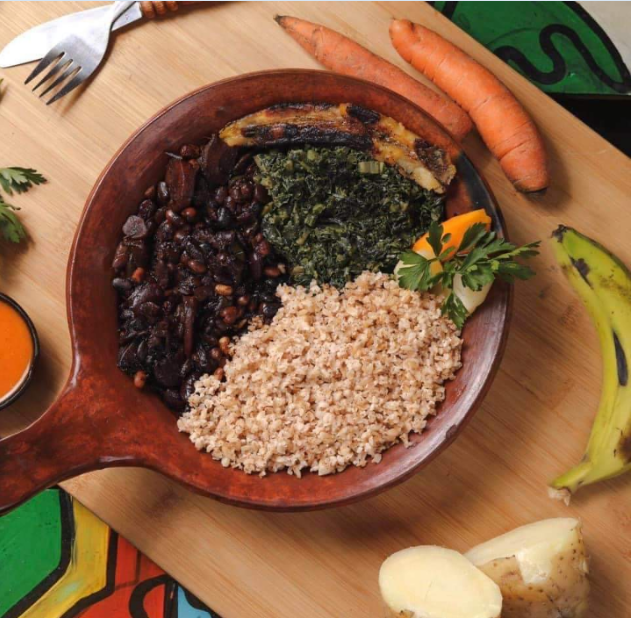By Thomas Fowler
By now you’ve probably exhausted your Netflix library and lowered your standards of media consumption to include the most obscure YouTube channels. Perhaps you’re watching a live stream of somebody’s window garden in Minnesota or following a commentary from an unknown YouTuber on their online shopping experience. You’ve tried to distract yourself, but introspection is creeping in.
These tips draw upon modern psychology, classical philosophy and handy apps, designed to ease you through the process with as little existential terror as possible.
- Stoicism
Perhaps the mostwell-known Stoic philosopher was Emperor Marcus Aurelius, who faced leadership during a global pandemic that killed up to 2000 Romans per day at its peak. The basic principles he followed were: Don’t fret the stuff you can’t change, change the things you can, and turn every situation into an opportunity to become the best you can be. Classical stoicism is a much more thorough and healthy philosophy than its modern-day definition of a stiff upper-lip. The app ‘The Stoic’ provides daily quotes from some of the greatest Stoic philosophers to give you a quick dose of motivation in the mornings.

- Strengthen your mind
Boredom can be a very destructive force to the mind, but it’s possible to practice a skill that can allow you to be perfectly stimulated by almost anything. Mindfulness meditation, in a general sense, is the practice of training your attention. A stronger attention helps memory, emotional regulation and communication, but most importantly right now, alleviates boredom. There’s nothing magical about it; simply sitting quietly, with your eyes closed, paying attention to your breathing, can be a daily exercise to deepen this state of awareness. Like lifting weights to become stronger, the attention needs to be trained by gently pulling it back to the breath, each time it wanders off. That’s all there is to it! Start with a timer set for 2 minutes and work your way up to a daily practise of ten minutes or more. Each time you overcome a distraction, you are strengthening your mind.
There are free guided sessions in the Smiling Mind app, and more comprehensive courses in premium apps like Head Space and Waking Up, both of which often have a free trial to check out.
- Strengthen your body
“Surely a person of sense would submit to anything, like exercise, so as to obtain a well-functioning mind and a pleasant, happy life”
-Socrates
Classic thinkersunderstand that a healthy mind required a healthy body. This must be done through both diet and exercise, and there is an app for that!
Whether you are overweight or underweight; even if you want to build muscle, calorie-tracking apps are the way to start, and home workout plans are the way to continue. Take this time to start weighing your portions and calculating your required calories and macro-nutrients. This isn’t complicated; you only need to learn the difference between carbs, fats and proteins, and get a feel for which foods provide what. Apps like MyFitnessPal have huge nutrition libraries with the most common foods and you can add to that database if you find a food that isn’t on the list. All you have to do it plug in your details, set your goals and try to be honest with your portion sizes.
Meanwhile, if you aren’t getting any exercise, start with push-ups by the bed. There’s nothing simpler and more accessible to everybody. Bodyweight exercise progressions are available to learn, and, track on apps by Down Dog and Virtual Trainer (Bodyweight).
- Sleep

It’s easy to start losing your routine when there’s no job to go to. And it’s hard to get good quality sleep without physical and mental stimulation during the day. The most straight-forward way to maintain a healthy sleep cycle is to set an alarm for the same time each morning. Even when going to work, sleeping-in during the weekend can have knock-on effects on your circadian rhythm during the week. Keeping the same hours 7 days a week might boost your productivity on your days off, as well as your days on. ‘Sleep hygiene’ practices such as switching off your electronic devices an hour or two before bed; keeping your sleeping space separate from your working space; and practicing the aforementioned mindfulness and exercise routines, can really help you form an easy sleep ritual. The Sleepapp has a handy sleep tracker that monitors your quality of sleep and allows you to set targets, catch up on hours missed and analyse your sleep patterns. It might also be worth considering f.lux, a program that gradually dims your computer screen in the evening.
- Work together

If you’ve been stuck in isolation with family, friends or lovers, you might be starting to feel a bit claustrophobic and irritable by now. Space is as important as intimacy in any relationship, and currently there isn’t a lot of physical space at our disposal. Fortunately, there is plenty of mental space to disappear into with meditation, and for the periods you spend with your eyes open, now might be a good time to learn some of the foundations of communication and hone up your social skills and diplomacy to relieve some tension.
Oftentimes, a conflict occurs when two or more people think they’re speaking the same language but aren’t. A work by Gary Chapman called Five Love Languages, breaks down how people communicate affection into five categories. There are plenty of resources and quizzes online to check which language is closest to yours, and you might be surprised to find the person you’re trapped with speaks a totally different one. For couples, the app Love Nudge provides an intro to the concept and helps to remind you of the best ways to show you care.
These tips can help you survive isolation, and come through the pandemic like a Roman Emperor.





